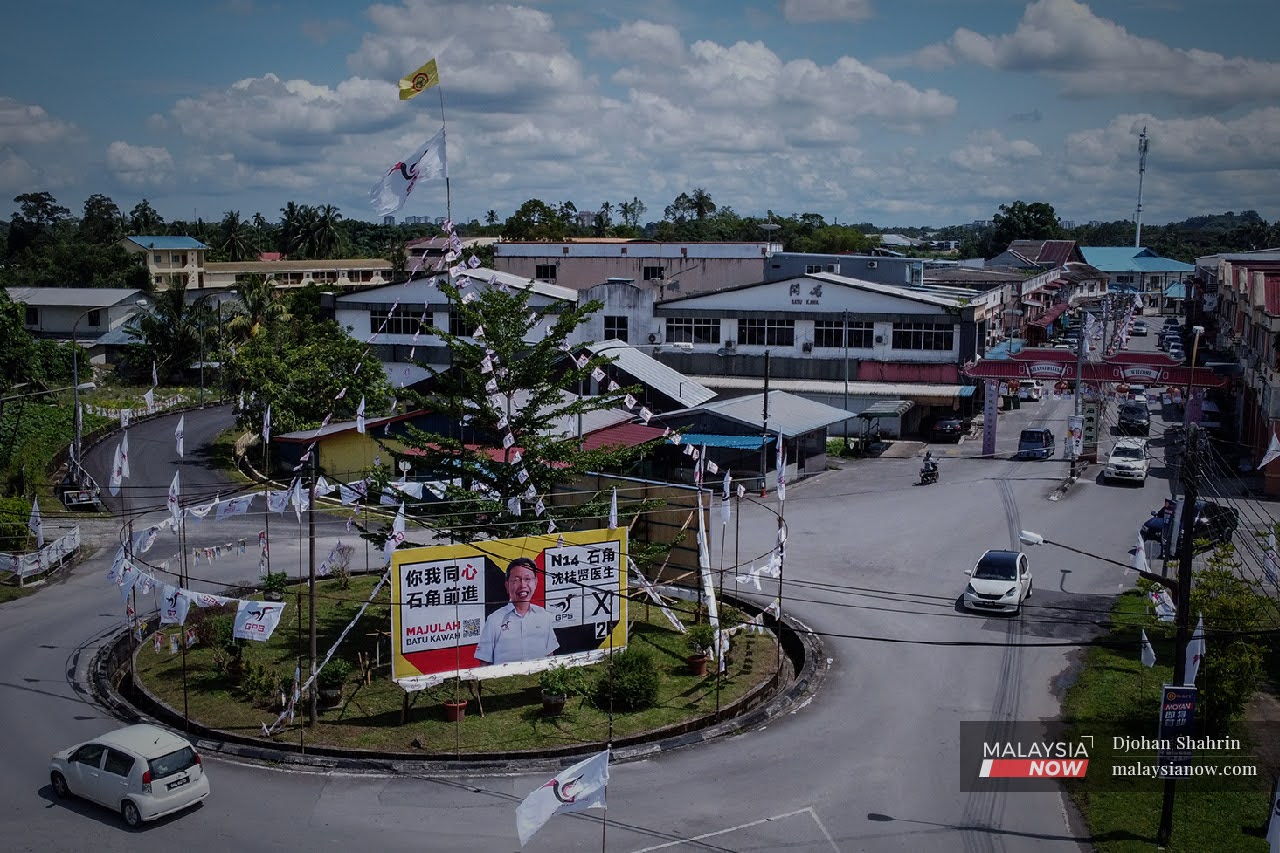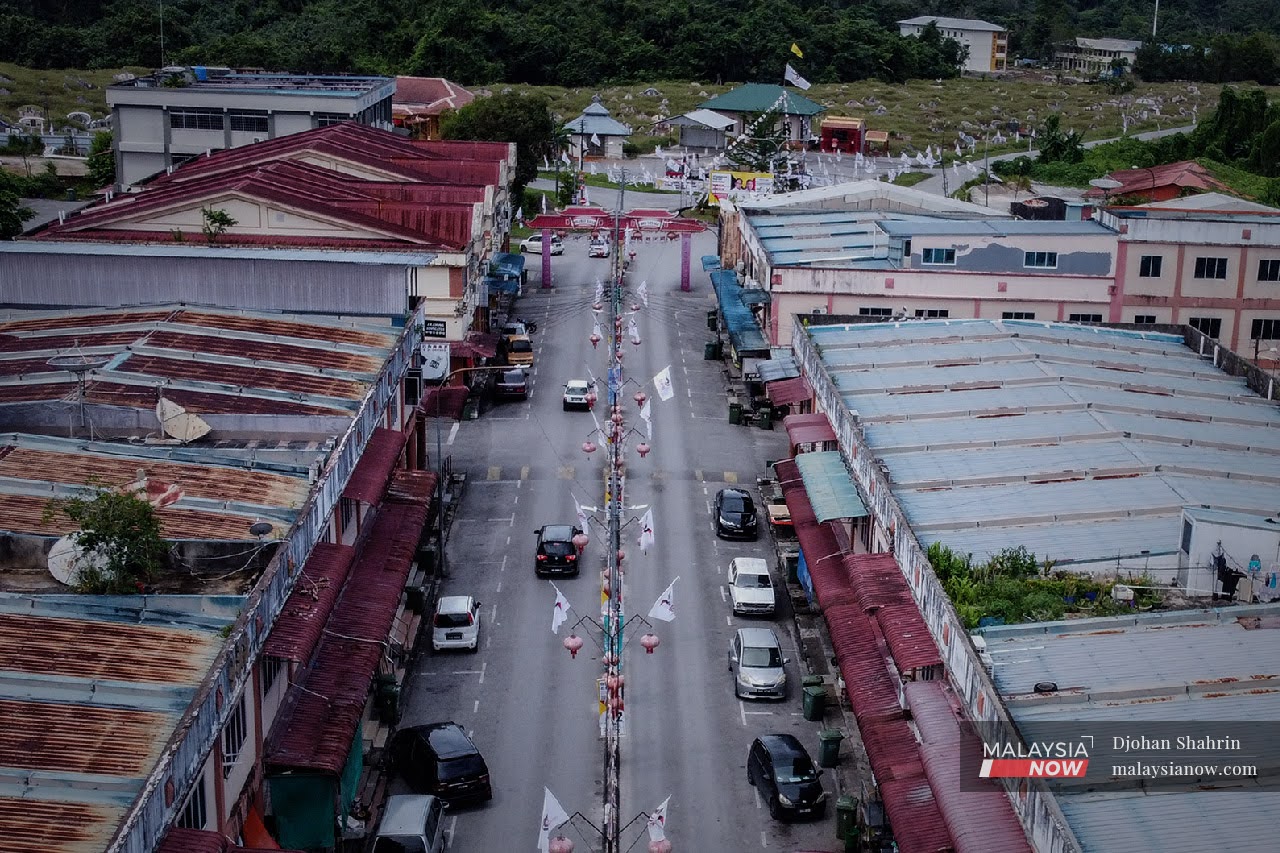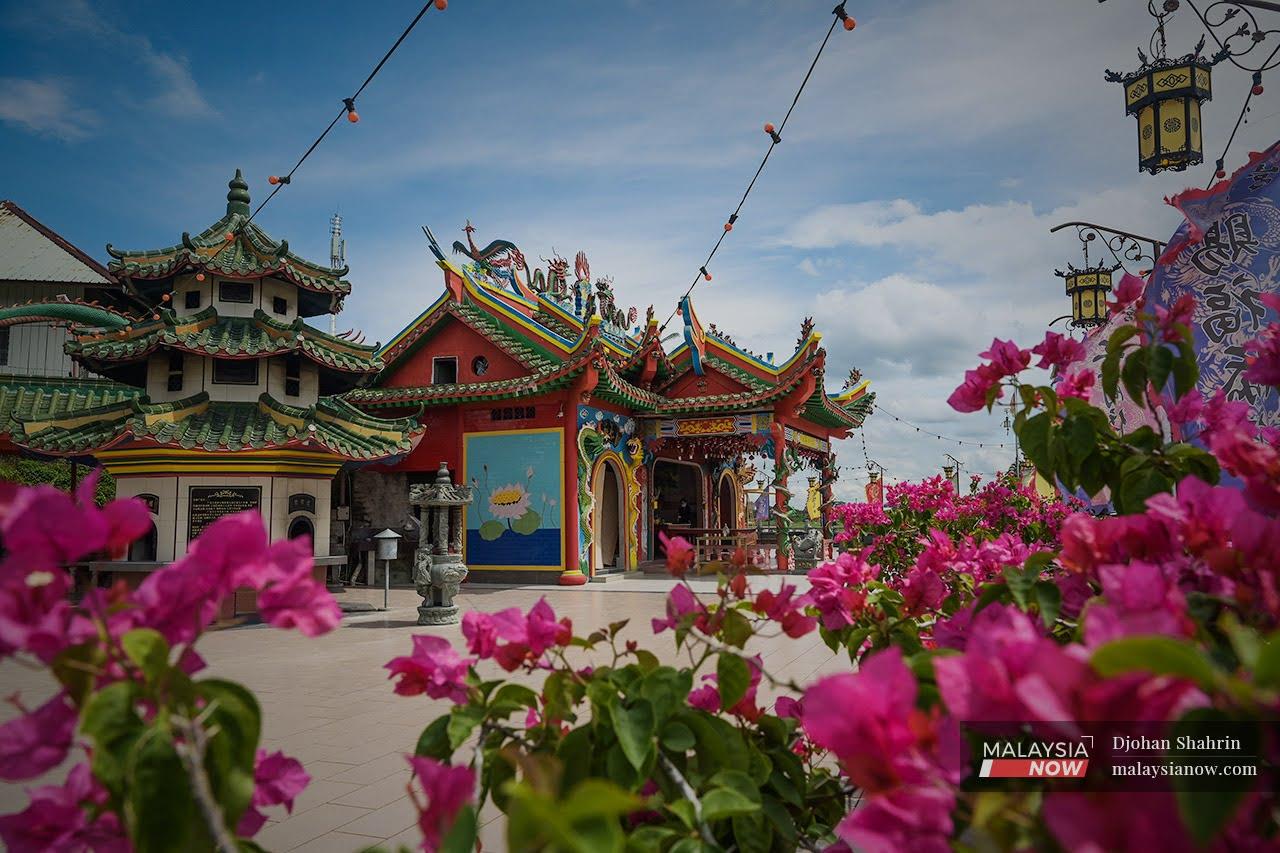Batu Kawah waits for return of golden days
The town has been through booms and busts, but never an election like the upcoming Sarawak polls.
Just In
When the sun hits directly over her shop in the small town of Batu Kawah, Aunty Foh knows it’s time to stop for lunch.
For four decades, her shop has stood on the outskirts some 20km away from Kuching, handed down through the family from generation to generation.
And for four decades, Aunty Foh and her family have watched the comings and going of the various state elections held in the Sarawak, the Land of the Hornbills.
This time, there is a marked difference in atmosphere.
“It’s an unusual campaigning period,” Aunty Foh told MalaysiaNow when met at her shop.
“It’s not like before. Campaigning periods then were like a festival.”

Now, the empty streets are a stark reminder of the effect that the Covid-19 pandemic has had since the virus was first detected in the country early last year.
Under Covid-19 health measures, most face-to-face election activities have been banned. While the flags of political parties still hang in the streets and posters of candidates greet the eye, the candidates and parties themselves are conspicuously absent.
For the most part, the town of Batu Kawah has been decked out with posters of Gabungan Parti Sarawak candidate Dr Sim Kui Hian, images of whom smile down amid the traditional red lanterns which hang from the shops.
Traditional Chinese music floats out from the shops but apart from that, the streets are still.
It is a far cry from the elections of previous years which saw the town bustling with activity. Houses then were packed with family members and friends, and crowds would spill into the streets to interact in noisy, boisterous dialogues with candidates.
“Many still do not feel the ‘heat’ of this election,” Aunty Foh said. In her words, it is in fact “quite gloomy”.

This time, election candidates have been urged to focus their campaigns on online platforms such as social media, to prevent any spread of the Covid-19 virus.
But this sidelines many from the older generation like Aunty Foh who are not technologically savvy and have little idea of how to engage with their candidates in the digital pandemic era.
Still, Aunty Foh is determined to go out to vote when the polling centres open on Saturday.
“At least there are still candidates’ posters and party banners hanging around the area, showing that an election is going on,” she said.
Booms and busts
The town of Batu Kawah has seen its share of ups and downs throughout the years, enjoying booms and surviving busts.
In its heyday, it was a bustling pitstop for traders who would transport their goods by boat.

Speaking to MalaysiaNow, grocer Thien Fong said the entire town began more than a century ago from three wooden shophouses owned by Chinese traders.
“From these three shophouses, the town grew until now, there are a total of 61 shops here,” he said.
In Batu Kawah, it seems, things are made to last.
“All these wooden shophouses that you see here were built at the start of the last century,” Fong said.
“They’ve all survived until today. Our grandfathers were the pioneers of this town.”
But 50 years ago, the bulk of traffic shifted from the rivers to the newly built roads, and decline began to set in.
The people have also had to struggle with flash floods which they now describe as a severe problem in the area.
Khairul and his wife, Zarina, who live in Taman Desa Wira, said this year’s floods were especially bad.
They attribute this to the ongoing construction of the drainage upgrading project.
“We have lived here for seven years and the water never reached our house. But this year, the water suddenly covered our house to the point that we needed to be evacuated.”
Sometimes, they said, the water can reach as high as waist level.
More recently, things began looking up again as people started visiting following the completion of the skybridge at the Batu Kawah Riverbank Park last month.

The first phase of the waterfront project is being marshalled by Sim, the incumbent for Batu Kawah, and is part of his bid to defend his seat for a second term.
Once finished, the park will include more than 1km of walkway from the Batu Kawah Old Town to Kampung Rantau Panjang, making it one of the biggest freshwater wetland parks in the country.
Chinese traders like Fong are hoping that the project will bring more visitors to the historic town, and that the development will transform the landscape and usher in a return of its golden days.
“Both Siniawan and Batu Kawah have strong historical value and are heritage areas,” Fong said.
“Tourists can take a boat from the Kuching waterfront all the way up to Batu Kawah and then on to Siniawan.
“I hope to see this town filled with visitors,” he said. “This is a good sign for the future.”
Subscribe to our newsletter
To be updated with all the latest news and analyses daily.
